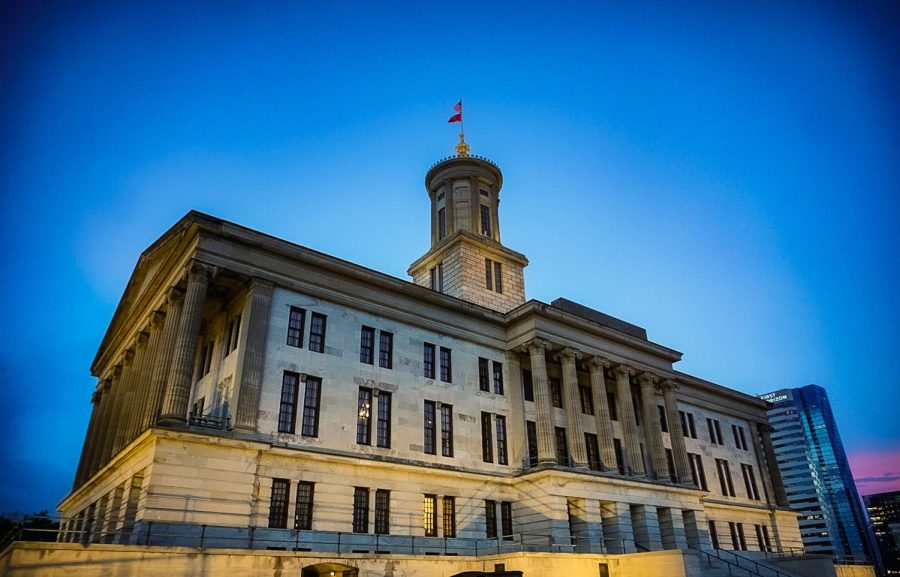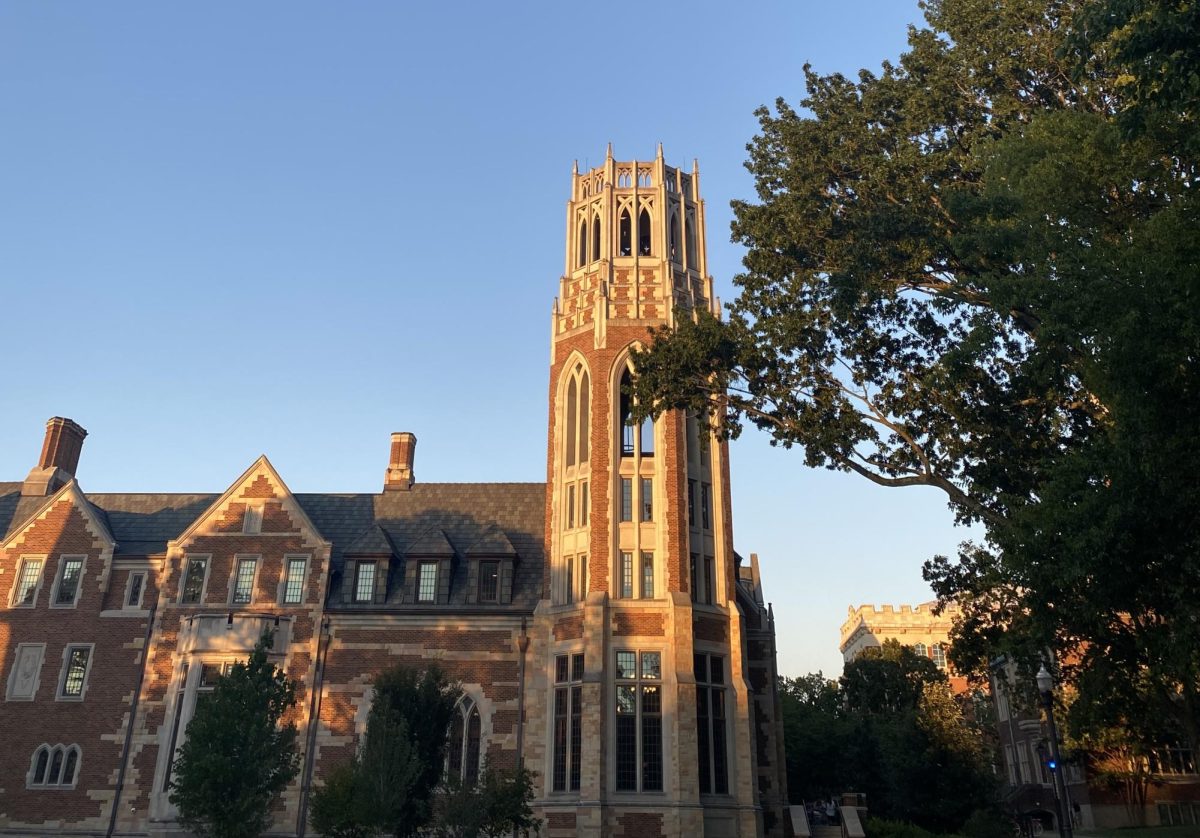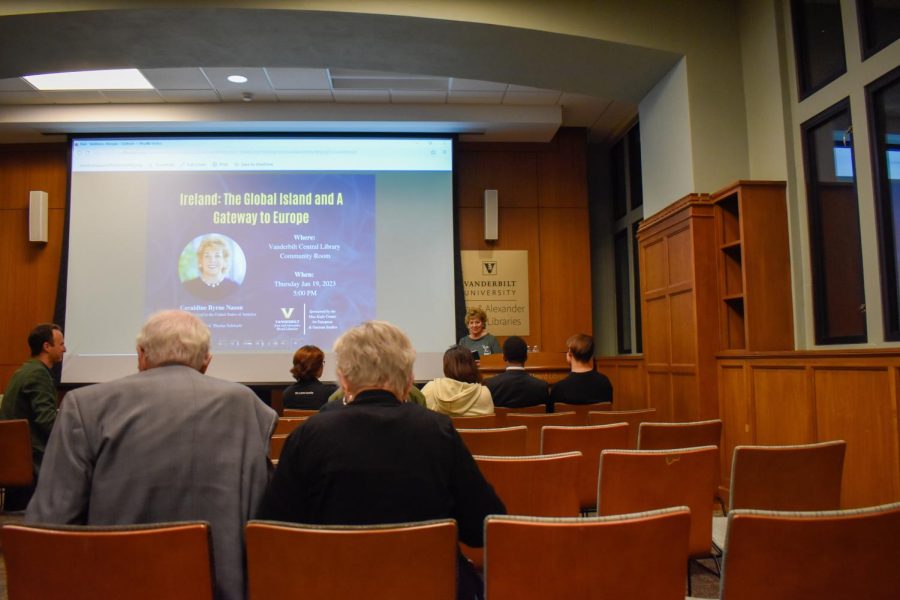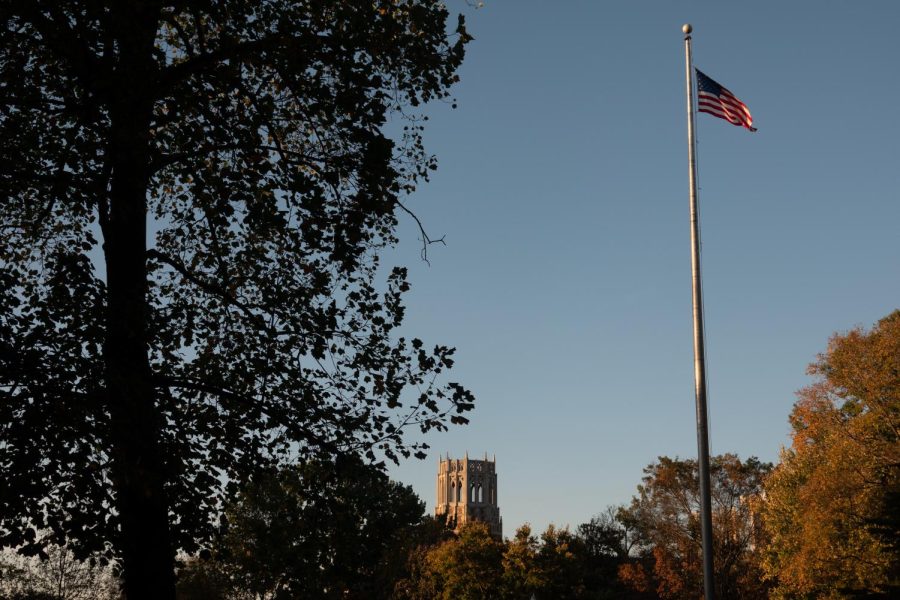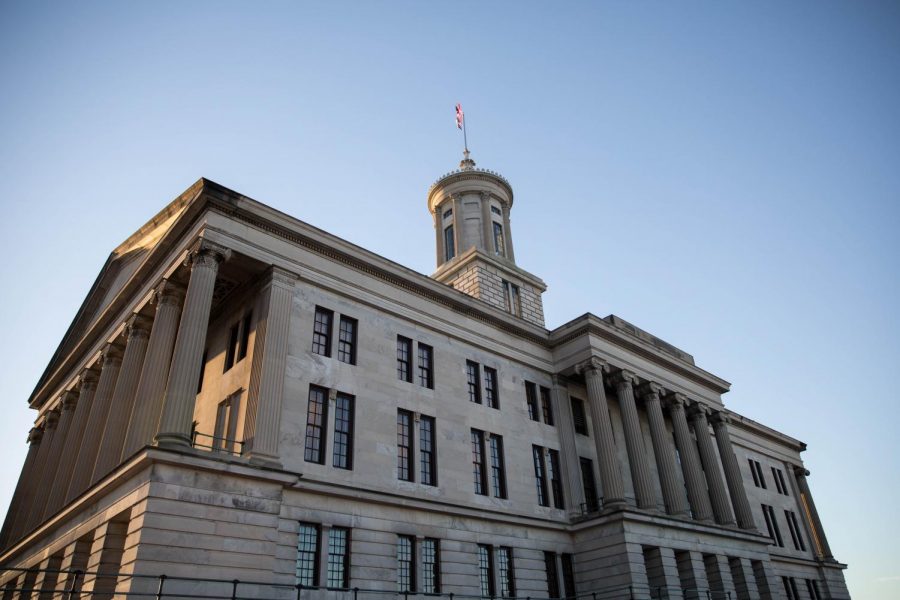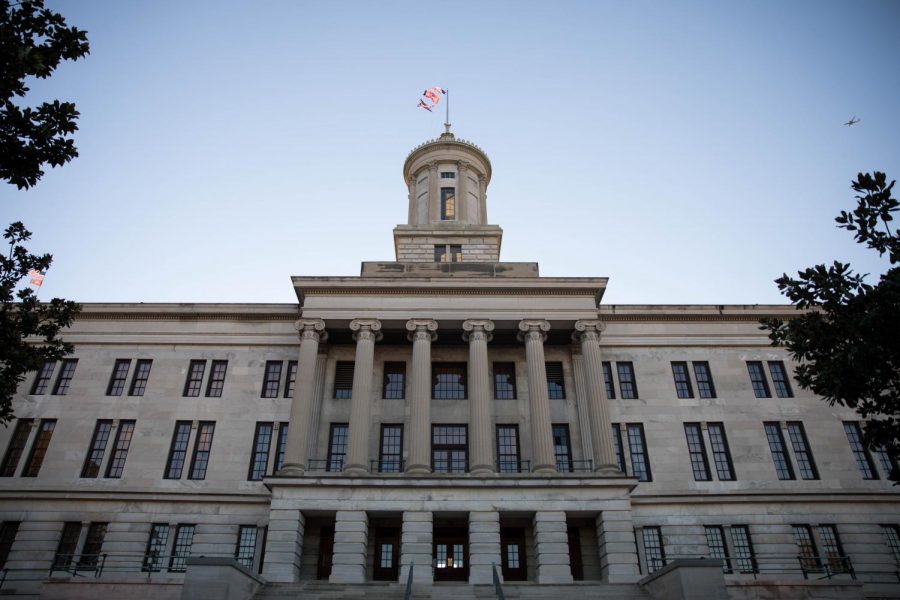The Fall 2022 Vanderbilt Poll surveyed 1,180 registered Tennessee voters from November 8-28. With an error margin of ± 3.4%, the poll reveals growing divides within the Republican Party, as well as shifting opinions about abortion laws in Tennessee since the overturning of Roe v. Wade (1972).
Conducted biannually since 2011, the poll is co-directed by political science professor Joshua Clinton and Vice Provost John Geer and relies on phone-based interviews with registered voters randomly selected from a list. Results are weighted by age, sex, education, race/ethnicity and state region to match the demographics of Tennessee voters. Topics surveyed by the poll include attitudes toward polarization, the economy, education and climate change.
Geer said he hopes the results of the poll will help Tennesseans understand one another better.
“Our hope is that Tennesseans have a better appreciation of what their fellow citizens think on key issues,” Geer said. “The results should be one part of a state-wide conversation about what policies are best for the state.”
Representatives of the Vanderbilt College Democrats and the Vanderbilt College Republicans did not respond to the Hustler’s request for comment on the poll’s results.
Unity and polarization
The poll found that, regardless of party affiliation, 59% of respondents perceived Americans as being “mostly divided.” However, beliefs about polarization at the state level were more varied, with 25% of respondents believing that Tennesseans are “mostly united” and 20% believing that Tennesseans are “mostly divided.”
The results also revealed that 69% of respondents agreed with the statement that their elected officials should work with members of the opposing party even if it means compromising on some of their “values and priorities.”
Election integrity
The poll also asked respondents about election integrity, specifically regarding the 2020 presidential election. Only 65% of respondents agreed that Joe Biden won the 2020 presidential election. Compared to 98% of Democrats and 72% of Independents, only 21% of respondents who identify as “Make America Great Again” Republicans and 51% of non-MAGA Republicans agreed with this fact.
Geer explained that, while public perception of election integrity has improved since the 2020 election, continuing attacks are concerning.
“The continuing attacks on the 2020 election by the former president poses a problem for the durability of our democratic system,” Geer said. “We need our elected leaders to abide by the will of our elections.”
However, a slightly higher proportion of respondents agreed that the 2022 midterm election results were counted fairly and accurately at the national level. According to the poll, 70% of respondents were either “very confident” or “somewhat confident” in the fairness of the results.
2024 presidential election
Looking ahead to the 2024 presidential election, the poll found that 22% of respondents wanted to see President Joe Biden run for re-election. On the other hand, 36% of respondents wanted President Donald Trump to run for president in 2024, an 8% decline from the Fall 2021 poll. According to Geer and Clinton, Tennessee voters are uninterested in a re-enactment of the 2020 presidential election.
“You think about the number of people in our political system who are really, really ancient, and I think there’s a desire for something younger just because life experiences matter. When you’re older, you’re aware of the considerations—how you think about situations changes, what becomes relevant to you is different,” Clinton said.
The poll also asked respondents if they would prefer Florida Governor Ron DeSantis or Trump to be the Republican nominee for president in 2024. MAGA republicans overwhelmingly favored Trump, with 60% choosing Trump and 37% choosing DeSantis. Those who identify as non-MAGA republicans, however, favored DeSantis by a similar margin of 66% to 31%. According to Clinton, these results should not discount Trump’s chances of becoming the Republican nominee because he holds a “solid base” of supporters among MAGA republicans, and the party uses a winner-take-all system to allocate primaries.
“If the anti-Trump vote is split among two or three candidates, the former president could have the support of enough delegates to capture the nomination,” the press release reads.
According to the press release, the poll’s overall results point to divisions emerging within the Republicans Party in the “GOP stronghold of Tennessee.” For example, 34% of Republicans said they are more in support of the MAGA “movement” than they are in support of the Republican Party.
“That so many Republicans think of themselves as more MAGA than classic supporters of the GOP has important implications, given the differences between MAGA and non-MAGA Republicans,” the press release reads.
Clinton said that, though it is difficult to pinpoint the source of divides in Republican affiliation, tendencies to self-identify as a MAGA Republican might stem from the notion of being on a “political team” or from apprehension over losing status.
“It does show that there’s this really different group of people that have very different views, very extreme views, and views that are somewhat hard to kind of fit in the larger political system,” Clinton said. “If you’re against compromise, don’t believe in our elections and think the other side’s dangerous and must be stopped at all costs, that’s a trifecta of not-goodness.”
According to Geer, disagreement within parties is fairly common, and it is critical for parties to find a way to overcome it.
“The MAGA vote is a powerful force in American politics. But it is very extreme, and it threatens to tear the Republican Party apart,” Geer said. “How the GOP handles the MAGA wing over the next few years will be important to what happens to our country.”
Abortion
Abortion has gained national attention in recent months after the Supreme Court’s Dobbs v. Jackson Health Organization (2022) verdict in June, which granted states the authority to determine abortion legality. Tennessee amended its laws to make abortion illegal from fertilization with no exceptions for rape, incest or maternal endangerment. The poll surveyed voters on their knowledge of the changes, and only 19% were able to correctly identify the new law. Meanwhile, 45% of respondents incorrectly identified the law, and 36% indicated they were unable to choose an option.
“[Tennessee’s abortion law] is one that is not supported by most Tennesseans. There needs to be an effort by journalists and activists to let people know what the policy of the state is following the Dobbs decision,” Geer said.
Across political affiliations, 75% of Tennesseans believe abortion should be legal in cases of rape and incest, with 62% of Republicans, 78% of Independents and 93% of Democrats agreeing. Aside from these exceptions, 69% of Tennessean voters, including 88% of Republicans, 62% of Independents and 47% of Democrats, agree with making abortion illegal after 15 weeks.
Clinton attributes the discrepancy between public opinion and state law to how the voices of those with extreme opinions often have more weight in political decision-making.
“Sometimes legislators create echo chambers so that people they’re hearing from are the most committed advocates who support them. So people who they support have more extreme views because how likely, if you have a moderate view for example, are you to protest and write letters?” Clinton said. “In a state like Tennessee, the people who have the ears of politicians are going to be far more extreme, far more Republican conservative learning.”
Tennessee’s abortion regulations have accompanied shifting opinions on abortion in the state. In 2012, 22% of respondents reported being pro-choice compared to 37% in 2022. Likewise, those identifying as pro-life dropped from 46% in 2012 to 36% in 2022.
Geer said this “remarkable” shift in public opinion about abortion was most influenced by the reversal of Roe v. Wade.
“Many people were pro-life, providing Roe was in place protecting that right,” Geer said. “Once Dobbs revised the Roe precedent, many people who were slightly pro-life moved to the pro-choice camp.”
Economy
The poll also asked respondents to evaluate economic conditions, both at the national and statewide level. By a wide margin, respondents rated the condition of the Tennessee economy better than that of the national economy, with 64% rating the Tennessee economy “very good” or “fairly good” compared to just 29% for the national economy.
Clinton suggested that perceptions of the economy are more so based on politics and the party in power than the actual state of the economy.
“You see what happened in 2016 when Trump was elected and, all of a sudden, the national economy went from being in the toilet under Obama to being gangbusting. The only thing that really changed overnight was who’s in control,” Clinton said. “I think the difficulty with all these questions is ‘what does that really mean?’ The way you interpret some of the questions is it’s more of a political statement: ‘my team is running the state; therefore, I’m going to say my economy is doing well.’”











